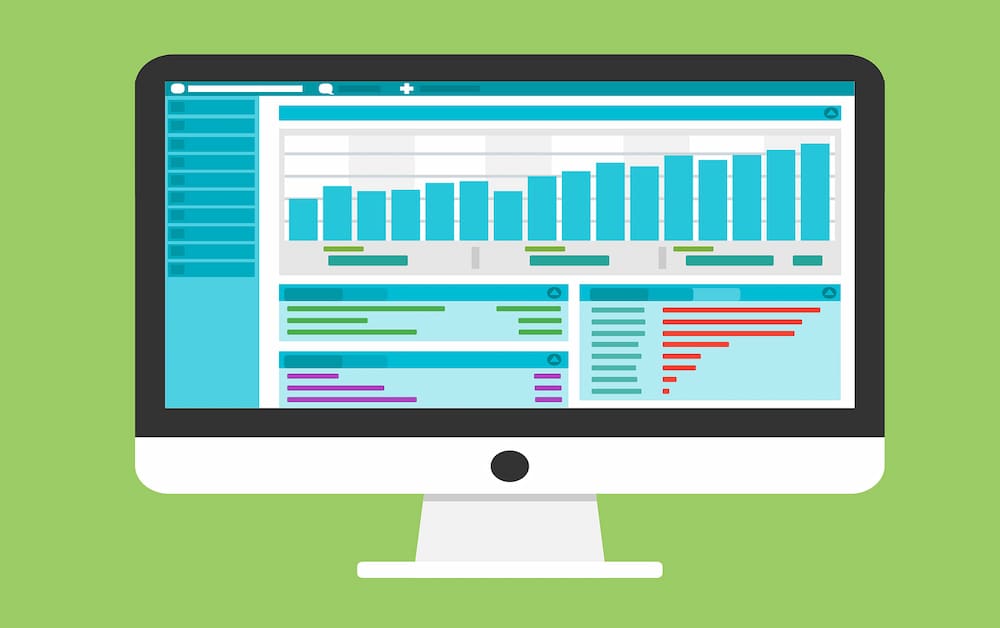Introduction
Understanding the importance of data privacy is crucial, especially in conducting Privacy Impact Assessments (PIAs) and Data Protection Impact Assessments (DPIAs) to ensure compliance with regulations, mitigate risks, and protect personal data. Processing personal data encompasses a broad range of operations performed on such data, including collection, recording, organization, structuring, storage, adaptation, alteration, retrieval, consultation, use, disclosure by transmission, dissemination, alignment, combination, restriction, erasure, or destruction.
The processing of personal data lies at the heart of various organizational activities, from customer relationship management to employee management and beyond. Personal data collection involves gathering information from individuals through various channels such as forms, surveys, or online interactions. Once collected, the data is recorded and organized to ensure its accuracy and relevance. Structuring and storing the data in a secure and accessible manner is essential for efficient data management.
Additionally, the data may need to be adapted or altered to comply with legal or regulatory requirements. Retrieval and consultation of the data are crucial for decision-making processes and to provide necessary information to authorized individuals. The use and disclosure of data by transmission or dissemination must be done per privacy laws and organizational guidelines to protect individuals’ personal information. Furthermore, aligning and combining data sets can provide valuable insights for improving organizational processes and services. It is also important to restrict data access and processing to safeguard sensitive information.
Finally, proper data erasure or destruction procedures must be followed to manage data at the end of its lifecycle securely. These data processing activities are fundamental to the effective functioning of organizations and require careful consideration to ensure compliance with data protection regulations and ethical standards.
Overview of Data Protection Impact Assessments (DPIAs)
A Data Protection Impact Assessment (DPIA) is a systematic process designed to evaluate and mitigate privacy risks associated with data processing activities. It is essential to regularly update and enhance data protection measures as part of DPIAs to ensure compliance with regulations and safeguard personal data. Mandated by Article 35 of the General Data Protection Regulation (GDPR), DPIAs are instrumental in promoting the principle of “protection by design.” DPIAs involve identifying, assessing, and mitigating risks to data subjects’ rights and freedoms.
DPIAs ensure that organizations proactively address privacy concerns, enhance transparency, and comply with regulatory requirements. By systematically analyzing potential risks and implementing appropriate measures, DPIAs help organizations protect individuals’ privacy rights and foster trust in data processing practices.
Through DPIAs, organizations can identify potential vulnerabilities in their data processing activities, assess the impact on individuals, and take necessary steps to minimize risks. By integrating DPIAs into their processes, organizations demonstrate their commitment to privacy and accountability, thereby building a robust framework for data protection and compliance with GDPR requirements.
Unpacking Privacy Impact Assessments (PIAs)
Privacy Impact Assessments (PIAs) are crucial in helping organizations adhere to privacy regulations and safeguard individuals’ personal data. By conducting thorough PIAs, organizations can proactively identify potential privacy risks, assess their potential impact on individuals, and develop effective strategies to mitigate risk and ensure compliance with privacy regulations such as GDPR Article 35 and CPRA. This comprehensive process involves analyzing the impact of a program on individuals’ information privacy, enabling organizations to gain a deeper understanding of potential privacy concerns and address them appropriately.
Furthermore, PIAs systematically evaluate projects’ impact on privacy, identifying and addressing potential risks while recommending measures to uphold individuals’ privacy rights. In essence, PIAs are instrumental in promoting transparency, accountability, and the protection of individuals’ privacy within organizations’ data-processing activities.
Differentiating between DPIA and PIA

Scope and focus
DPIAs primarily assess the impact of data processing activities on data subjects’ privacy rights and freedoms, focusing on compliance with the GDPR. DPIAs are particularly relevant when processing activities involve sensitive personal data.
PIAs, on the other hand, delve into the intricacies of how organizations handle PII across various projects or processes, examining compliance with relevant privacy regulations.
Timing and triggers
DPIAs are typically conducted before the commencement of high-risk data processing activities, serving as a proactive measure to identify and mitigate potential risks.
PIAs may be conducted at different stages of a project lifecycle but are commonly initiated during the planning phase to ensure privacy considerations are integrated from the outset.
Legal requirements
The GDPR mandates DPIAs for certain processing activities, particularly those involving high risks to data subjects’ rights and freedoms.
While the GDPR does not explicitly require PIAs, conducting them is considered good practice and may be required by specific privacy laws or regulations.
Evaluating privacy risks

Identifying risks
DPIAs involve a comprehensive analysis of potential privacy risks associated with specific data processing activities, considering factors such as the processing’s nature, scope, context, and purposes. When conducting a Data Protection Impact Assessment (DPIA), it’s crucial to analyze the potential privacy risks associated with processing sensitive data, especially when there’s a significant risk to individuals’ rights and freedoms.
PIAs focus on identifying risks related to PII collection, use, and storage within a particular project or process, considering the data’s sensitivity and potential impact on individuals.
Assessing impact
DPIAs assess the severity and likelihood of privacy risks, considering the potential harm to data subjects and the organization’s ability to mitigate those risks.
PIAs evaluate the impact of privacy risks on individuals’ rights and freedoms and the organization’s reputation, regulatory compliance, and overall business operations.
Mitigating privacy risks

Implementing controls
DPIAs recommend specific measures to mitigate identified privacy risks, such as implementing technical and organizational measures, pseudonymization, or encryption.
PIAs provide guidance on implementing privacy-enhancing measures tailored to the project or process under assessment, including privacy-by-design principles, access controls, and data minimization techniques.
Monitoring and review
DPIAs involve ongoing monitoring and review of implemented controls to ensure their effectiveness in mitigating privacy risks and maintaining compliance with the GDPR.
PIAs may include provisions for regular reviews and updates to reflect changes in data processing activities, emerging privacy risks, or evolving regulatory requirements.
High-risk data processing activities that would require a DPIA according to the GDPR
Processing personal data in scenarios that pose a high risk to individuals’ rights and freedoms necessitates a Data Protection Impact Assessment (DPIA). This includes:
Systematic and extensive processing of data for profiling with significant effects on individuals, such as scoring or predicting behavior.
Large-scale processing of special categories of data or personal data relating to criminal convictions and offenses.
Systematic monitoring of a publicly accessible area on a large scale, especially when using new technologies to process data.
Processing data involving vulnerable individuals, such as children or employees, where there is a significant power imbalance between the data controller and the data subject.
Combining, comparing, or matching personal data obtained from different sources or data sets for specific purposes.
How do organizations determine whether a specific project or process warrants a PIA?
Organizations typically assess the need for a Privacy Impact Assessment (PIA) based on various factors:
Nature of processing: Organizations evaluate the nature and scope of the processing activities involved in the project or process. If the processing involves collecting, using, or managing personal data, particularly sensitive information, it may trigger the need for a PIA.
Potential impact on privacy: They analyze the potential impact of the project or process on individuals’ privacy rights and freedoms. Factors such as the volume of data processed, the sensitivity of the data, and the potential consequences of unauthorized access or misuse are considered.
Risk assessment: Organizations conduct risk assessments to determine the likelihood and severity of privacy risks associated with the project or process. High-risk activities, such as systematic monitoring, large-scale data processing, or processing special categories of data, may necessitate a PIA.
Regulatory requirements: They also consider legal and regulatory requirements. In many jurisdictions, privacy laws or regulations mandate the completion of a PIA for certain types of processing activities, especially those posing a high risk to individuals’ privacy.
By carefully evaluating these factors, organizations can determine whether a specific project or process warrants the completion of a Privacy Impact Assessment. The European Data Protection Board also provides essential guidance on privacy regulations, emphasizing the importance of conducting PIAs to ensure GDPR compliance when transferring personal data outside the EU.

What privacy-enhancing measures are recommended in DPIAs and PIAs to mitigate privacy risks?
Organizations commonly recommend various privacy-enhancing measures in both Data Protection Impact Assessments (DPIAs) and Privacy Impact Assessments (PIAs) to mitigate privacy risks:
Data minimization: Minimize personal data collection, storage, and retention to the extent necessary for the intended purpose.
Anonymization and pseudonymization: Implement techniques such as anonymization or pseudonymization to reduce the identifiability of individuals in datasets.
Access controls: Establish strict access controls and authentication mechanisms to limit authorized individuals’ access to personal data.
Encryption: Encrypt personal data in transit and at rest to protect it from unauthorized access or interception.
Transparency and consent: Provide individuals with clear and transparent information about how their data will be processed and obtain their consent when required.
Data retention policies: Develop and enforce data retention policies to ensure that personal data is not retained longer than necessary.
Training and awareness: Conduct regular training sessions for employees to raise awareness about privacy risks and ensure compliance with data protection policies.
Regular audits and reviews: Perform periodic audits and reviews of data processing activities to identify and address any potential privacy issues or compliance gaps.
Implementing these measures helps organizations enhance privacy protections and mitigate privacy risks associated with their data processing activities.
Consequences for organizations failing to conduct DPIAs or PIAs
Failing to conduct DPIAs or PIAs as data protection regulations require can significantly affect organizations. Non-compliance with these assessments may result in hefty fines and penalties under regulations such as the GDPR, where fines can reach up to €10 million or 4% of annual revenue, whichever is greater. Failure to adequately conduct DPIAs or PIAs can expose organizations to the risk of prosecution, administrative fines, and other sanctions.
These assessments are essential for identifying and minimizing the risks of infringing upon the rights and freedoms of data subjects. DPIAs are mandated to process any data that poses a risk to individuals’ rights and freedoms or for specific large-scale processing activities. Without conducting these assessments, organizations may face reputational damage and loss of stakeholder trust, potentially leading to missed business opportunities. Therefore, organizations must prioritize properly implementing DPIAs and PIAs to ensure compliance with data protection regulations and mitigate the associated risks.
Conclusion
In summary, Data Protection Impact Assessments (DPIAs) and Privacy Impact Assessments (PIAs) are both important tools for identifying and addressing privacy risks, but they have distinct differences in terms of scope, focus, timing, and legal requirements. DPIAs are obligatory under the General Data Protection Regulation (GDPR) for high-risk data processing activities. They primarily evaluate the potential impact of such activities on the rights and freedoms of data subjects.
On the other hand, PIAs are specific to individual projects and focus on how organizations manage personally identifiable information across a range of initiatives. Their goal is to ensure compliance with relevant privacy regulations and protect individuals’ privacy rights. Understanding these differences is crucial for organizations to manage the complexities of data protection and privacy compliance effectively.




